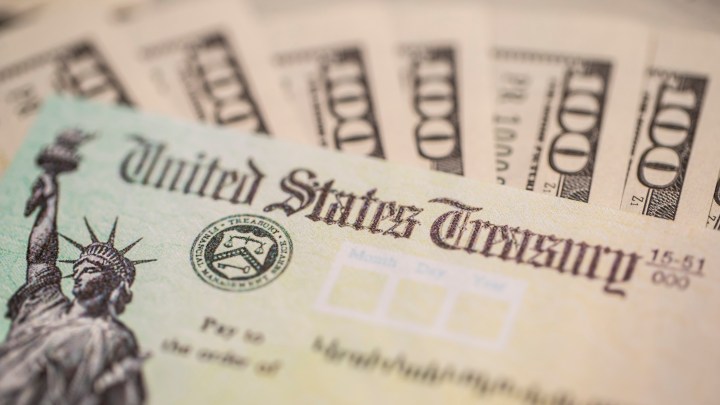
Why high yields on Treasury notes should worry you

The yield on the 10-year Treasury note finished at 3.564% on Tuesday — the highest it’s been in more than a decade. It’s all in anticipation of those Federal Reserve interest rate hikes that should be coming our way Wednesday.
In case you’re a bit rusty: The 10-year T-note is really just a 10-year loan investors make to the federal government. So why should you care if that loan is a little more expensive for the federal government than it used to be?
Even if you’ve never been late with a bill in your life and you still have your Diners Club card from 1954, the U.S. government has a better credit score than you.
So, when the interest rate Uncle Sam has to pay on his debt goes up, the interest rate you have to pay on pretty much everything also goes up — because you’re a riskier bet.
“When you’re making auto loans, obviously there’s at least some degree of risk even on customers who have very good credit, and therefore, the Treasury yield offers sort of a lower bound on what we’re able to offer,” said Matt Dundas, who heads the auto financing unit at Carvana.
Since the yield on Treasury debt has shot up in recent months, “we’ve passed at least half of that on to consumers, and in many cases, more than that,” Dundas said.
But what if you don’t need a new auto loan or mortgage or credit card balance transfer?
Higher yields on government bonds also mean corporations will have to pay higher rates on their debt, said economist Erik Norland with CME Group.
Which, if you’re thinking of going beyond quiet quitting, you should also care about. “As corporate bond yields rise, typically hiring slows down,” Norland said. “And this is something I think the Federal Reserve wants to achieve.”
Because a cooling labor market should cool down wage growth, which should cool down inflation. At least, that’s the logic. It’s not just the 10-year T-note you should be paying attention to though. Interest rates on some shorter-term debt are higher — the so-called “inverted yield curve.”
“What it suggests is that down the road, a recession is going to unfold,” said Quincy Krosby with LPL Financial.
The bond markets aren’t right about that all of the time, Krosby said. But they’re worth watching.
There’s a lot happening in the world. Through it all, Marketplace is here for you.
You rely on Marketplace to break down the world’s events and tell you how it affects you in a fact-based, approachable way. We rely on your financial support to keep making that possible.
Your donation today powers the independent journalism that you rely on. For just $5/month, you can help sustain Marketplace so we can keep reporting on the things that matter to you.











